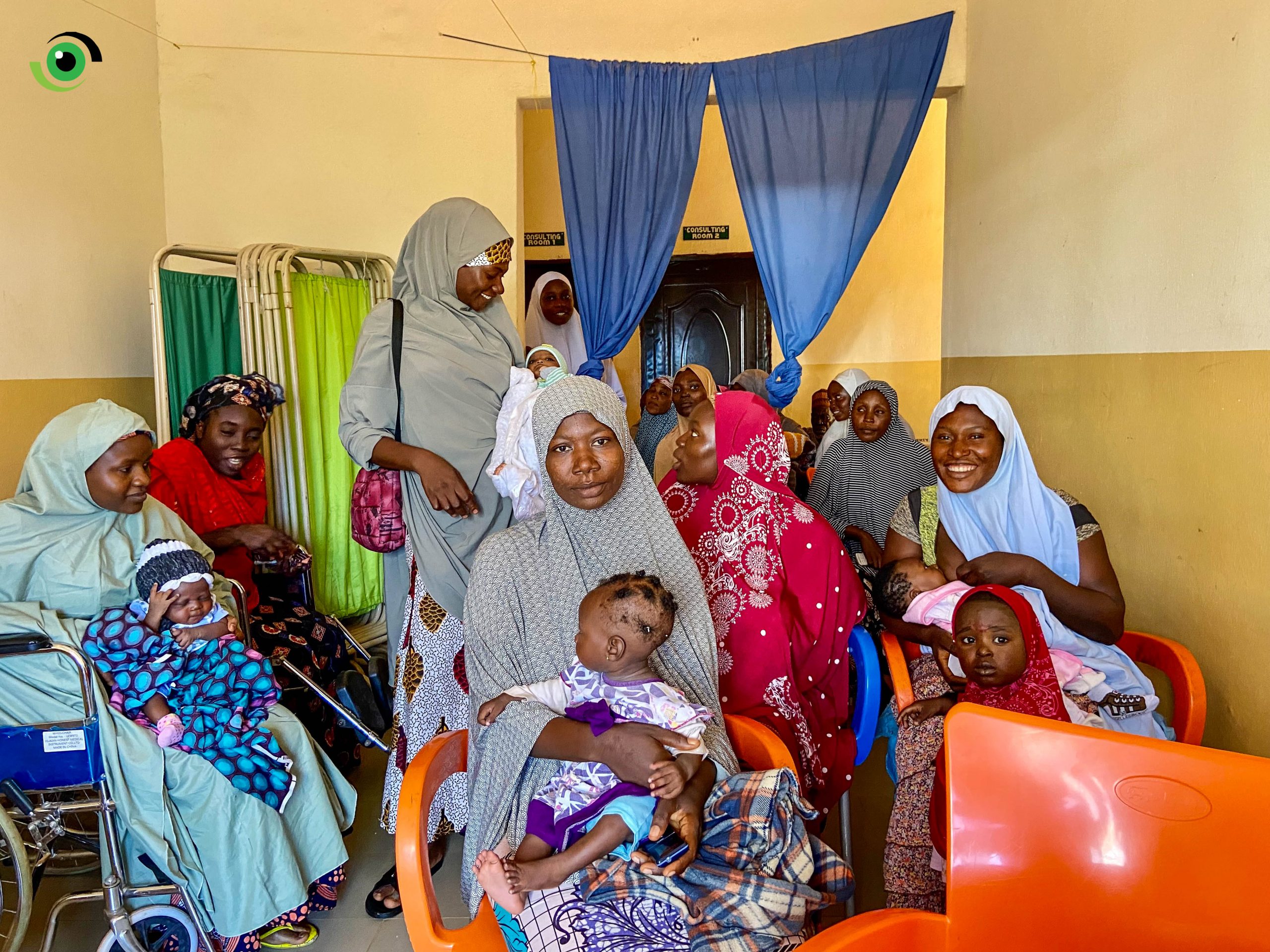It was a cold, serene morning in Garkuwa community of Wase Local Government Area (LGA), Plateau State and in a consulting room in Cottage Hospital, Sahura Kasimu sat with her two-month-old son, Mustapha nestled in her arms, as she spoke with Martina Dabot, the attending health officer. Kasimu gave birth to Mustapha in the same health facility and since then, they have both been receiving postnatal care over the phone and in person, an experience she did not have with her older child. “Both you and Mustapha are doing well,” said Dabot as she ended the session, “I will call you within the week to check on you. Please continue the exclusive breastfeeding.” Outside the room other women waited, some pregnant, some carrying newborn babies. Like Kasimu, they were there for either antenatal or postnatal checks.
Antenatal services are a standard practice in Cottage Hospital, however in July 2021 with the support of Rural Health Mission Nigeria under the Lifesaving Intervention Project implemented in Wase LGA, postnatal services were introduced for mothers and new babies. The aim was to improve the wellbeing of women and their newborns, before and after delivery, through improved antenatal and postnatal care, and facility delivery as described by Hassan Idris, Rural Health Mission Nigeria program coordinator in the LGA.
The program is being implemented in six communities in Wase, with more than 200 women registered and receiving antenatal and postnatal services. It also supports facility delivery with the donation of lifesaving kits. The kit, which is given to pregnant women at the point of deliver at health facilities contains sanitary pads, soap, gloves and methylated spirit.
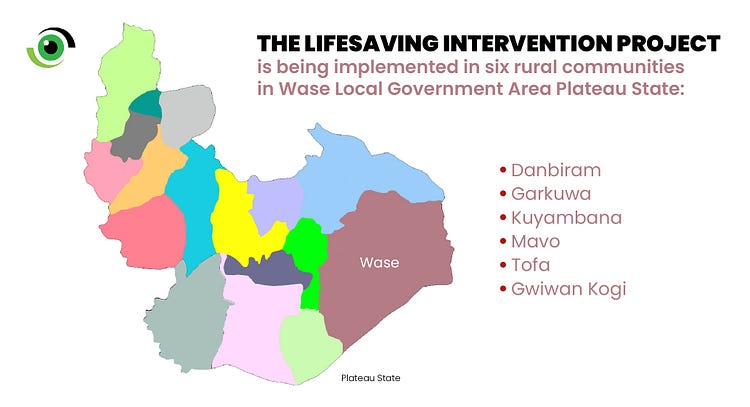
Postnatal services at home and at health facility
Across the LGA, the program uses a network of health workers who have been trained in social mobilisation, maternal and child health awareness and maternal health service delivery, to improve awareness of antenatal and postnatal care among women, as well as provide the services. A follow-up system designed to take quality maternal health services to pregnant and breastfeeding women at home is a key component of the program. The health workers visit the women to enquire about their well-being and if need be, take them back to the health facilities for care. They also telephone the women periodically to check-up on them and provide counselling where necessary.
“At the start of the program, we collected the phone numbers of all the registered women and their husbands, so if we don’t get them on phone, we call the husbands and if there is need to bring them to the facilities, we call the husbands to inform them as well,” said Zainab Umar, a health worker in Kuyambana Community Health Centre, also in Wase LGA, where more than 40 women are receiving postnatal care under the program.
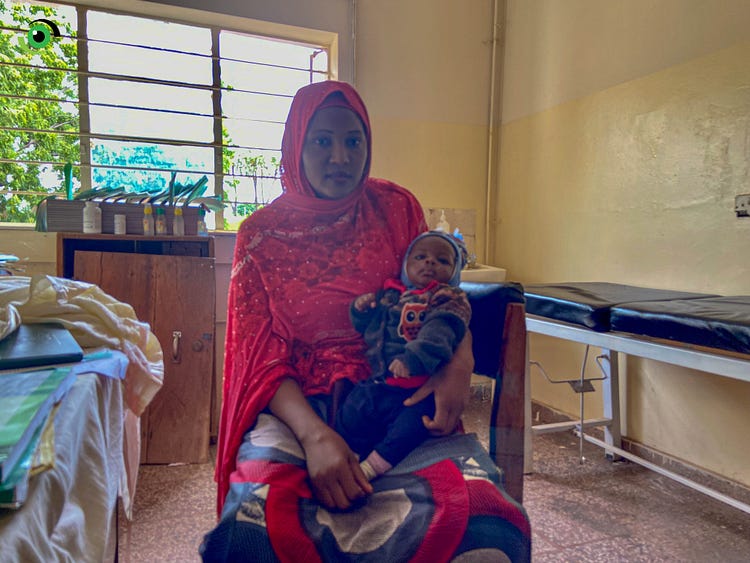
During a visit to Kuyambana Community Health Centre, Umar and her colleagues, Asiya Sunusi and Nafisa Jibril were seen attending to some women who were attending their postnatal visit and among them was a 25-year-old mother of four, Shamisya Usman. Carrying her two-month-old baby, Ibrahim, Usman said even though she had attended antenatal during her previous pregnancies, she relishes the idea of having a postnatal home visit and facility care. “I was pleasantly surprised and happy when Asiya (Sunusi) came to visit me one week after I delivered. Since then, she has visited me three more times,’’ she said. Usman found the hospital visit quite productive as apart from counselling on exclusive breastfeeding and routine immunisation for Ibrahim, Sunusi discussed and advised her about the benefits of using contraception to space her children. “I discussed with my husband, and he agreed. We are starting soon,” she added.
An unintended consequence
Rural Health Mission Nigeria had set out to improve the wellbeing of pregnant women and newborns in their host communities. But their intervention has birthed an unintended consequence as it is also contributing to improving the mental health of pregnant women.
Pregnancy sometimes comes with negative experiences that could affect a woman’s mental health and the simple fact that they have access to and can speak to someone who will respond to them with knowledge and empathy can be quite helpful in alleviating some fears. “A health worker calling and visiting me to ask of my wellbeing gives me so much joy and encouragement. It has reduced so much fear I had in the beginning of my pregnancy,” confessed 19-year-old Halima Suleiman, who is seven months into her first pregnancy. “I feel much more at ease now and I am looking forward to having my baby,” she said, adding that she fell ill a few weeks ago and called Umar who not only came to her home but also took her to the health facility for treatment.
Simple but promising initiative
Antenatal attendance, albeit low in some parts of Nigeria, is a common service provided in health facilities across the country. The 2018 National Demographic Health Survey (NDHS) showed only 67% of pregnant women receive antenatal care from a skilled healthcare provider. However, providing both antenatal and postnatal checks by way of home visits and phone calls by health workers are relatively new initiatives that can improve maternal and newborn child health in Nigeria. Through these visits, minor and possibly major health problems affecting mother or child could be detected and addressed early. It can also serve to provide some encouragement for women, as they go through multiple physical and physiological changes during pregnancy.
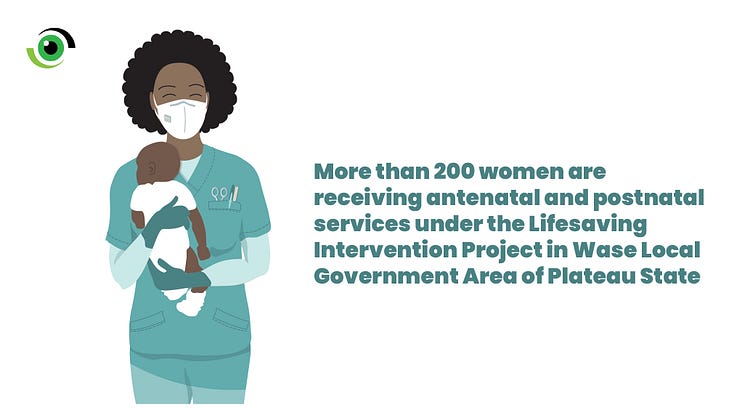
This initiative can be used to improve healthy practices like exclusive breastfeeding and the uptake of modern contraceptives, as evidenced by Sunusi’s visit to Ibrahim. However, these home visits and phone calls could be viewed as alternatives to visiting health facilities. For instance, a woman could decide to wait for a visit or call from the health worker instead of going to health facilities when she or her baby falls ill. This is a potential unintended negative outcome Rural Health Mission Nigeria should anticipate, and devise strategies to prevent as they continue implementing the program.
Need for equity in implementation
Leveraging on skilled health workers resident in rural communities to improve maternal and child health is an approach deployed by governments and organisations across sub-Saharan Africa. Deliveries by skilled birth attendants are particularly low in Nigeria and according to NDHS 2018, only 39.4% of the deliveries were assisted by skilled health workers. However, a key limitation to these programs is that these health workers work as volunteers, mostly without renumeration. The health workers under the Lifesaving Intervention Project are engaged as volunteers and the health workers at both Cottage Hospital and Kuyambana Community Health Centre report that they have not received a stipend since the program started in July. This, they said, is demotivating. “We are putting in extra work in addition to our regular job at the health facility, yet we are still not renumerated,” said one of the health workers.
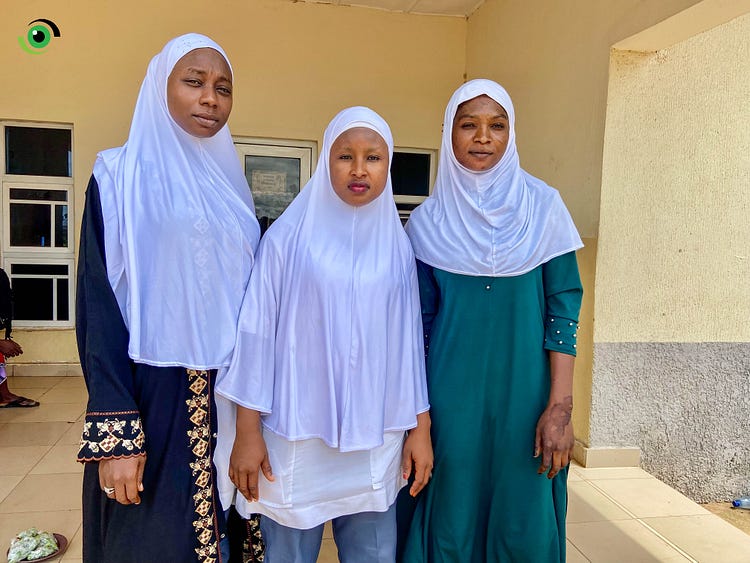
As the Mission continues to improve the lives of mothers and their newborns, it is imperative to ensure that health workers, who are the main drivers of the program, are well compensated. If through their work, they can prevent one maternal and child death, thus contributing to reducing the national maternal and child mortality burden, they must be encouraged to do more.
It is reassuring to see women like Kasimu, Usman and Suleiman, and babies like Mustapha and Ibrahim receive the care they need. The hope is that Lifesaving Intervention Project continues with its plans to expand the project to more communities in Wase and assist more health facilities to provide improved antenatal and postnatal care while also keeping in sight the objective of ensuring that these health facilities take ownership of the project in the long term.


